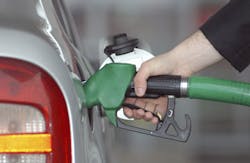American Petroleum Institute slams EPA’s Tier 3 gasoline standard
The American Petroleum Institute (API) has called on the U.S. Environmental Protection Agency (EPA) to withdraw its Tier 3 gasoline regulation on the grounds that it would be too expensive for refiners and that the agency failed to provide enough time for the oil and gas industry to implement the regulation properly.
In addition, the API claimed that Tier 3 gasoline regulation is unlikely to result in any significant environmental benefits. According to Patrick Kelly, the API's senior fuels policy advisor, the EPA has so far failed to provide any conclusive evidence that the new regulation would improve air quality. In a conference call with reporters, Kelly stated that the proposed new standard was "completely arbitrary" and lacked any scientific justification.
Kelly also quoted a recent study by consulting company Baker & O'Brien, which estimated that implementing the new standard would result in an extra $10 billion of capital expenses and a further $2.4 billion per year in compliance costs.
RELATED: European refineries still facing major challenges
Meanwhile, the study also showed that the process of removing the entire amount of sulfur from gasoline, as required by the EPA, would actually increase carbon dioxide emissions at refineries due to the energy-intensive hydrotreating equipment needed for the process, Kelly said.
The industry was concerned over the short timeframe within which the new regulation has to be implemented. Kelly explained that it would leave refiners with limited options for redesigning and readjusting existing equipment and for installing new technology to ensure compliance.
